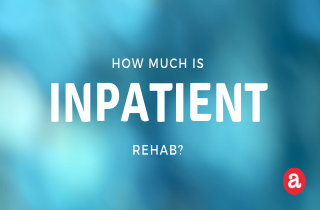The residents take an active function in this mode of treatment helping them to take responsibilities and end up being favorable function models. Some Healing Communities provide boosted services for pregnant and post-partum females and their infants, which include coordination of prenatal/pediatric care. https://blogfreely.net/aebbat1z9i/a-href-en-wikipedia-org-wiki-drug_treatment-consider-the-expense-of Social Model programs stress a sober living environment, peer therapy and case management.
Locals are expected to be involved in the external community (through work, education, volunteer activities, etc.) Eligibility: For all 3 types of domestic services, individuals, eighteen years and older who are in early healing from alcohol and/or other drug addiction. Concern is provided to individuals with impairments, cultural and linguistic minorities, homeless individuals, injection drug users, persons involved with the criminal justice system and individuals with or at danger for HIV/AIDS.
These programs provide a safe and structured therapeutic environment where ladies might get residential compound dependency treatment services while still preserving custody and care of their children. Reunification with children can occur while the mother is remaining at the program. Eligibility: Women with kids who remain in early healing and require assistance in establishing and preserving life skills required to achieve drug totally free living.
Examine This Report on How Long Is Inpatient Drug Rehab
Programs supply shelter, coordination and case management of substance dependency treatment and other services for homeless families in order to support and sustain sobriety. Eligibility: The targeted population is identified as homeless caretaking moms and dads or pregnant women, referred by the Department of Transitional Help, who have physical custody of a minimum of one child and who have a chronic compound dependency problem.
Youth Residential Programs supply short-term residential rehabilitative services to youth in between the ages of fourteen and eighteen years who require a supervised environment to reinforce their just recently obtained sobriety - how to pay for drug rehab without insurance. Includes diagnostic, therapy, educational and pre-vocational, leisure, and HIV/AIDS associated services. Eligibility: High-risk youth between 14 and 18 Mental Health Delray years of age who are experiencing emotional/ behavioral, family, developmental and/or social dysfunction as an outcome of their alcohol and other substance abuse.
Outpatient Therapy provides treatment for grownups and teenagers, their families, and/or their loved ones who are affected by the usage of alcohol or other drugs. Clients are assisted in gaining and maintaining abilities for a substance-free lifestyle. Services include assessment and treatment preparation, individual, group, and family therapy. Eligibility: Anybody with issues about a substance addiction issue, or a family member/significant other who has concerns about someone else's compound addiction problem.
How Long Does Drug Rehab Take for Beginners
Day Treatment and Intensive Outpatient Treatment are more extensive than Outpatient Treatment. Programs offer each client with several hours of therapy daily, approximately four days a week consisting of: specific, group and family counseling, regression prevention, contagious disease avoidance, case management, and motivation of the usage of self aid groups.
Acupuncture and recovery maintenance programs supply services for individuals with histories of compound addiction that need treatment for mild to moderate withdrawal signs. Services include minimal medical screening and intake, motivational counseling/case management and acupuncture treatments. Eligibility: Open to customers with mild to moderate withdrawal signs. Service is not suitable for customers in need of a medically kept an eye on detox.
These programs consist of specific, family, and group therapy and case management services. Eligibility: Clients must meet the requirements of pathological gaming. Opioid Treatment offers medically kept track of treatment services for clients who are addicted to opiate drugs such as heroin or pain medications and have a history of chronic relapse. Opioid Treatment services integrate medical and medicinal interventions (such as methadone or buprenorphine) with expert outpatient counseling, education, and occupation services (how do you become a drug rehab counselor).
What Does How Much Is Drug Rehab Do?

Aftercare/ Healing Assistance Services supply case management services to assist link people and households to community supports such as self-help, housing, educational/vocational services and employment. The Massachusetts Department of Public Health Bureau of Compound Dependency Providers supports 7 Peer Healing Support Centers throughout the Commonwealth. These centers, located in Brockton, Greenfield, Lawrence, Marlborough, Roxbury, South Boston, and Worcester serve as safe locations for individuals in recovery from compound use disorders to support each other's recovery.
Since 2006, Massachusetts has been a leader in the development of Recovery High Schools. These schools goal at meeting both the academic and healing associated requirements of trainees with substance usage disorders, by supplying a safe and encouraging alcohol and drug complimentary environment. Recovery schools have been revealed to reduce student's rates of regression and increase their graduation rates.
The overall goal for Helpful Case Management is to help grownups and/or households in recovery to help them attain self-sufficiency. This objective is attained through case management services within an alcohol and drug-free living environment that strengthens healing through establishing community-based assistances to keep ongoing objectives in the recovery process.
How Much Is Drug Rehab - Truths
Eligibility: Men or ladies who have actually been sober for a minimum of three (3) months, and have a badly restricted capability to live independently because of a lack of earnings, decreased social skills, and/or insufficient social assistances. Neighborhood Real estate programs identify the targeted population as homeless households and people impacted by compound addiction.
The Institute for Health and Healing at (617) 661-7277 collaborates access to the Neighborhood Real Estate Programs. Community based case management programs supply assistance services for people throughout the course of recovery and aftercare. Case management services improve access to care, offer additional support for clients to improve treatment outcomes and assist customers develop neighborhood contacts and supports for long-lasting recovery.

Homeless Services offer compound addiction services to homeless people with alcohol and other drug problems. Most of these services are offered within the homeless shelter system. Compound Abuse Shelters for People Substance Abuse Shelters for People (SASI) and the Pine Street Inn Night Center provide shelter for compound abusing homeless individuals whose habits is difficult to handle and less proper for shelter in the basic shelter system due to their current substance use - what to do after drug rehab.
A Biased View of How To Start A Drug Rehab Facility
PDPR is a HUD-funded transitional supportive housing program that offers subsidized rooms with some case management services to people in early healing, primarily after cleansing. The intent is to bridge, in the brief term, the time between discharge from detox and admission into residential treatment, transitional or long-term housing. Eligibility: Homeless individuals age 18 and older referred by a public ATS (detox) program, a homeless shelter, or outreach worker.
The McKinney definition consists of individuals living either: on the streets; in an automobile; in a shelter; in a transitional real estate program having actually originally come from the streets or a shelter; and, those at instant risk of homelessness due to a discharge or eviction within one week. The Bureau of Substance Addiction Providers manages the arrangement of compound dependency education and treatment alternative sentencing programs for those founded guilty of very first or second offenses of driving under the impact.
The Driver Alcohol Education (DAE) programs are available to those people who concur to the alternative sentencing sanction as defined within Massachusetts General Laws for the offense of driving under-the-influence. Particularly, each DAE Drug Rehab program individual is supplied with a structured group where they get academic product to assist them identify and comprehend alcoholism problems and drinking-and-driving behaviors.